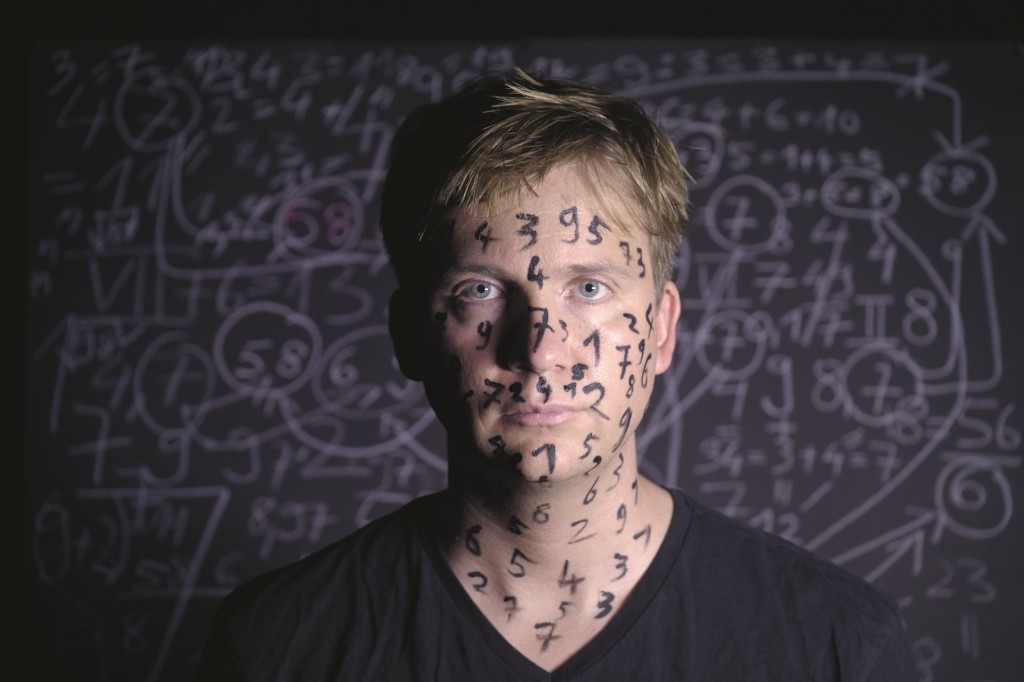What may seem like a crazy quirk to others is a lasting psychological impairment for Oliver Sechting: He suffers from so-called "magical obsessive thoughts". With the remarkable documentary film "Wie ich lernte die Zahlen zu lieben" (How I learnt to love numbers), he is now daring to go public and encourage other sufferers. From Axel Schock.

The 58 alone is bad enough. But when a 6 or 9 is added, Oliver Sechting's pulse starts to race. Anyone who understands what is going on in his head at this moment can understand why he panics. This combination of numbers is downright deadly. At least that's how it feels to him. With a 7, or even better a 100, everything would be fine again. Oliver could also swallow a brilliant, which would enable him to equalise even the most threatening number combination. In his childhood, the son repeatedly resorted to this emergency solution - much to the chagrin of his parents, who ran a jewellery shop.
Everyone has strange habits, quirky quirks and habits always make for a good story that people like to tell for entertainment. However, those who are affected by them can't laugh about it. No matter whether Oliver sees numbers on banknotes and road signs or counts steps: These numbers dominate his everyday life, sometimes more, sometimes worse. Colours can also exert this power over him. Obsessive-compulsive disorder is a mental disorder that affects around two per cent of all adults.
And they suffer not only from the effects of these compulsions on their everyday lives and the fears they experience directly, but also from the fear of the reactions of their fellow human beings. Who wants to be considered "crazy", laughed at and ostracised?
It is therefore all the more courageous how the Berlin-based Oliver Sechting makes the subject of his documentary "How I learnt to love numbers". The 39-year-old social education worker with a degree in gay counselling and filmmaker, who has been living in a partnership with Rosa von Praunheim for several years, had actually planned a completely different film. Together with co-director Max Taubert, they wanted to explore New York's queer art scene. But Oliver's illness not only sabotaged the filming. The close friendship between the two filmmakers also reached its limits. Without further ado, they made the effects of the obsessive-compulsive disorder itself the subject of the film and brought it to the fore. The film still contains rudiments of the original project - interviews with the drag disuse Joey Arias, with Ultra Violet , the star of Andy Warhol's Factory and with filmmakers such as Ira Sachs ("Keep The Lights On") and Jonathan Caouette ("Tarnation"). However, the conversations are now less about art and more about illness, constraints, self-love and self-esteem. Tom Tykwer, for example, reveals his personal compulsiveness: when he leaves his flat, he will make sure that he takes ten steps to do so. If necessary, he would take an extra step to get to the even number.
In a night-time snapshot, he shows how Oliver's obsessive-compulsive disorder affects his life. He films himself standing alone at a crossroads, with strange figures loitering nearby, but Oliver is unable to cross the road. There is an inappropriate house number on the building opposite. The passing car licence plates only make matters worse. Is there perhaps a matching dollar bill in his trouser pocket that could release him from this desperate state of shock?
In this scene, as well as in the interspersed video diaries, Sechting is not only able to vividly explain the constraints themselves, he also demonstrates a sense of humour in such difficult situations. He even gets to the bottom of the causes of his illness. In the hotel room they shared, he describes to his fellow director Max how, after his father's early death, he anxiously checked in the evening whether all the doors and windows in the house were really locked. Later, the door handles all had to be pushed up. Then it had to be several rounds in a row. These rituals became more and more complicated - until he moved them more and more into his head, differentiating between good and bad colours and numbers, which could be combined endlessly, potentiated in their effect or even neutralised.
This description alone makes you dizzy as a spectator. What must it feel like to be directly affected by it? With their film, the filmmaking duo not only succeed in telling the story of their friendship, which has survived this crisis, but also in understanding the phenomenon of obsessive-compulsive disorder as a non-affected person. For Sechting, this unplanned cinematic coming-out as a compulsive disorder sufferer was also a piece of self-therapy. With this documentary, he hopes to encourage other people with mental impairments to "stand up for themselves and go through life with self-confidence", as he says. "Therapies can help, but not always cure. You can despair about it or you can try to make the best of it. Telling your own story as a sufferer is a good step towards getting yourself and others out of a dark corner of life and into the light."
"How I learnt to love numbers". Director: Oliver Sechting, Max Taubert. D 2014, 88 min.
Official website for the film: http://www.zahlenliebe.de/
Cinema tour in the presence of Oliver Sechting & Max Taubert
on 21 November, Bochum, views film festival of the ruhr region
on 22 November, Wiesbaden, Exground Filmfestival
26 November, Cologne, Exposed Film Festival
28 November, 8 pm, Berlin, Filmrauschpalast
from 27.11. regularly in cinemas, e.g. 27.11-10.12., Film Rausch Palast Moabit, Berlin and Filmhaus Köln









